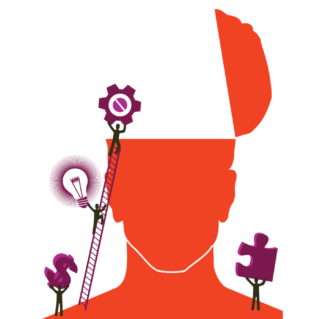VERVE founder Callum Negus-Fancey is building a powerful, transparent brand through word-of-mouth and using rewards-based compensation instead of cash
As most in our channel know by now, successful gig companies have sweetened the deal traditionally made by direct selling with ready-made customers, no startup fees and same-day pay. Gig worker numbers keep rising, and by 2020, Intuit, the owner of TurboTax, predicts they will comprise 43 percent of the workforce.
Direct selling may have no competitor more formidable than the gig. Whether it’s an Airbnb garage conversion, a crafty Etsy shop or leveraging a car through Lyft or Uber, gigs are supplanting personal revenue streams once produced solely by direct selling.
Traditional big dream pitches like financial independence and luxurious lifestyles that use cash compensation aren’t enough anymore. Direct selling’s gig counterparts understand the short-term, tangible needs of their workers—companies within our channel must too.
“Industry executives can either continue with head-in-the-sand thinking and pretend this trend won’t affect the future of direct selling, or they can take a step back and allow themselves to hear the alarm bells and make changes before it’s too late,” Direct Selling News warned last November.
Evolutionary progress at revolutionary speed—today’s re-evolution has companies scrambling not only to meet Amazondriven consumer demands for one-click purchase and one-day ship but also to make compensation plans easier with quicker payouts that attract the coveted millennial.
VERVE: Focusing On The Experience Spectrum
 With that ongoing re-evolution in mind, SUCCESS Partners’ Stuart Johnson invited Callum Negus-Fancey, founder and CEO of Verve.co, to SUCCESS Partners University a few months back to chat about building a platform that enables people to bring their friends to the best experiences and share rewards.
With that ongoing re-evolution in mind, SUCCESS Partners’ Stuart Johnson invited Callum Negus-Fancey, founder and CEO of Verve.co, to SUCCESS Partners University a few months back to chat about building a platform that enables people to bring their friends to the best experiences and share rewards.
“We’re very focused on the experience spectrum. It’s very, very big. If you take our demographic, which is really 16- to 28-year-olds, they’re spending north of a trillion globally on experiences every year. But if you take the kind of commission that we can take and the percentage of inventory that’s available for a product like ours, you’re talking about a $20 billion addressable net opportunity every year,” Callum says.
Selling Experiences Peer-To-Peer
At 17, Callum marketed dance events to fellow U.K. teens. “We sold a lot of tickets through peer-to-peer. We built these huge networks of kids across the country, who sold tickets to their friends. But rather than cash, it was for rewards: sell eight tickets, get to go free; sell 25, get to go backstage,” he says.
Rewards compensation carried forward to Verve, a global platform that integrates directly with major ticketing providers and tech partners. Verve started in music, which comprises 50 percent of revenue, and added travel. Now sports, restaurants and bars are targets.
“Ultimately, we’re a marketplace where people can sell experiences and products to their friends and earn rewards for doing it. So they’re bringing their network, whether it’s to a travel destination, a music event, and then they’ll earn free trips, free tickets, and there’s always something in it for their friends as well,” Callum says.
The Rewards Of Word-Of-Mouth
“The fact that it’s reward-based is a really important part of the model, Callum says. “We want to create really genuine, authentic conversation. I think because of that we’ve attracted an audience who really does put their network ahead of themselves, which in turn means it creates a much richer buying experience for the end customer. They feel like they’re buying from someone that they know and they can trust.”
“You don’t need to be persuaded of something to become aware of it, but you do need to be persuaded of something to want to buy it. And I think that’s where word-of-mouth obviously wins. It’s a two-way conversation. There’s obviously an accountability and a trust that exists through that channel that doesn’t through others,” Callum says.
Word-of-mouth isn’t simply one-to-one marketing. It’s more effective to think of it as many-to-many. Brands produce content worth sharing, many people engage, many people share with one another and in so doing strengthen relationships. The persuasion is tied to subculture, knowledge or passion. As it’s magnified over time, it becomes a more empirical influence, which sways purchase decisions.
Universal Drivers Of Intrinsic Motivation
From the whys of wealthy teens selling tickets to earn status with friends to millions of uniquely, authentic micro-messages delivered through omni-channel word-of-mouth today, Verve leverages intrinsic motivation. Callum built the whole company around it.
Rather than methodical goal setting, Verve focuses on selfawareness by creating space for people to find passions, explore what gives and takes energy, and parse differences between fearing and not being good at something. They invest heavily to help advocates overcome. This builds loyalty.
Intrinsic motivation keeps employees engaged too. ROI employee engagement targets rank at nine across the board, but liking a job hinges on useful work, so Verve focuses on quality, not quantity and heavily rewards impact versus effort. Voluntary churn is negligible.
“Cultural fit is an oxymoron for diversity, and we all know that diverse teams outperform teams that aren’t,” Callum says. “People have different values—that’s the point. They don’t really change. So we don’t think about it from that perspective. We think about it much more top-down. What’s the kind of environment that we want to create? It’s rooted in this idea of the universal drivers of intrinsic motivations so relevant to everyone.”
He warns, “In a knowledge-based company, your biggest wasted resource is human time and human potential. I think this kind of culture gets rid of that waste.”
Transparent As Glass
Money-based compensation models can feel tired to millennials and breed skepticism if transparency is lacking. People notice that gap between promises and reality. “We try to promise quite little and just talk about the direction that we’re going, but then create lots and lots of tangible proof points over time that back up those beliefs. I think this creates a much more sustainable momentum,” Callum says.
Compensating with rewards rather than money, Verve is essentially built with glass. Gone is the skepticism and stigma associated with cash compensation plans. This highlevel transparency creates better buying experiences for end customers and safeguards the company too. Verve requires potential advocates to apply, and Verve decides who gets into the platform and who doesn’t.
Takeaways For Direct Selling
So if it works for Verve, could similar philosophies help direct selling companies bridge the gap between promise and reality? What would it look like to shift a portion of compensation toward rewards? Would it help in getting rid of the wheeler-dealers and assist in repairing the industry’s reputation?
Verve’s example offers impactful action items that could create a win-win for direct selling companies in short order:
- Tweak messaging and get rid of direct selling jargon that conjures up negativity. Keep it simple and transparent.
- Appeal to representatives’ intrinsic motivations and help them conquer fears.
- Goals are goals, but teach selfawareness—so people find passions. Everyone’s happier, engaged and more successful when they love what they do.
- Lastly, don’t be afraid to mix it up. People have different cultural values, and that’s the point. Bring diversity of thought to the table and see productivity rise. Shake things up, move people around and modify work to encourage peak performance in ways that value quality and impact over quantity and effort.



